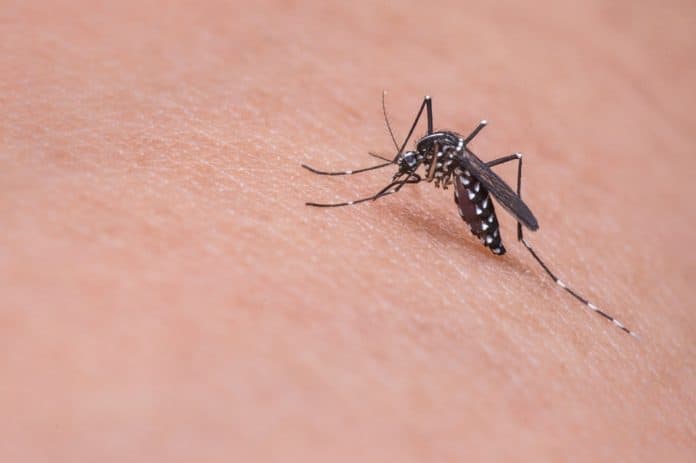
NEW JERSEY – After the state of New Jersey has reported one confirmed death associated with the West Nile Virus (WNV), officials are urging residents to take precautions.
The New Jersey Department of Health (NJDOH) and New Jersey Department of Environmental Protection (NJDEP) is asking people to protect themselves from mosquito-borne diseases with steps to reduce mosquito populations on their properties.
Currently, New Jersey has 14 WNV human cases, three confirmed and 11 probable, reported in the following counties: Bergen (2), Burlington (3), Camden (2), and one each in Essex, Gloucester, Middlesex, Passaic, Somerset, Ocean and Monmouth.
Normally there are about eight WNV infections reported per year. This year the WNV activity in mosquitoes is also high, with more WNV positive mosquito pools found this year compared to five-year averages.
The Camden County man who passed from the virus was in his 60s and became ill in mid-July. He has been attributed to WNV neuroinvasive disease. The months of August and September are when most WNV cases are reported in the state.
“It is important to remind residents to continue to take precautions to protect themselves against mosquito bites,” NJDOH Commissioner Judith Persichilli said. “Using an insect repellant and avoiding being outdoors when mosquitos are active are just some of the steps residents can take to stay safe from mosquito-borne illnesses.”
People get the WNV disease when bitten by a mosquito that has fed on an infected bird. WNV is not directly transmitted from birds to humans.
For many people, the virus causes asymptomatic infection or a mild to moderate illness typically with a fever. People over age 50 and people with weak immune systems are at greater risk of developing severe illness.
About one in 150 persons will develop a more severe form of the disease, with symptoms such as severe headache, high fever, neck stiffness, stupor, disorientation, coma, tremors, convulsions, muscle weakness and paralysis.
“We are seeing an increase in mosquitos at present due to the recent flooding from Ida,” Department of Environmental Protection Commissioner Shawn M. LaTourette said. “DEP is working closely with every county’s mosquito control program and posting safety guidance for residents on our social media channels. New Jersey residents can help stay safe by making sure to remove any standing water in yards and to cover any empty containers that can hold water for more than three days.”
To protect against mosquito borne diseases, residents should:
- Apply EPA-registered insect repellant
- Avoid being outdoors during dawn and dusk when mosquitos are most active
- Wear long sleeves and long pants
- Cover crib, stroller and baby carrier with mosquito netting
- Repair holes in screens to keep mosquitoes outside and use air conditioning when possible
New Jersey’s WNV surveillance, control, and prevention activities involve the coordinated efforts of a number of federal, state and local agencies including: NJDOH, NJDEP, the New Jersey Department of Agriculture, the U.S. Centers for Disease Control and Prevention, the State Mosquito Control Commission, the Rutgers Center for Vector Biology, and local health and mosquito control agencies.
NJDOH’s weekly surveillance reports are online at: nj.gov/health/cd/statistics/arboviral-stats.
N.J. arboviral activity in mosquitoes is available at: maps.vectorsurv.org/arbo.
For more information on WNV, visit NJDOH’s West Nile webpage at nj.gov/health/cd/topics/westnile.shtml and NJDEP’s mosquito webpage at nj.gov/dep/mosquito.







